MercoPress. South Atlantic News Agency
Tag: Central Bank of Brazil
-
Tuesday, January 19th 2021 - 08:29 UTC
Brazilian economy forecasted to grow 3,45% this year with 3,75% inflation
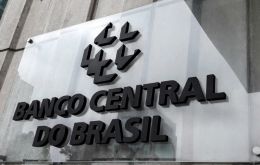
Brazilian financial and market analysts upgraded their economic growth forecast for 2021, from 3.41% to 3.45%, and maintained the projection at 2.5% for 2022, the Central Bank of Brazil announced Monday.
-
Wednesday, January 13th 2021 - 09:14 UTC
Brazilian interest rates in the next 24 months expected to rise steadily
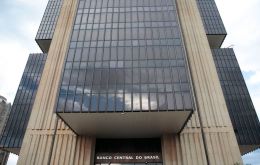
The outlook for Brazilian interest rates over the next two years rose to their highest in several months, a central bank survey of economists showed on Monday, even as exchange rate and inflation expectations held steady.
-
Wednesday, January 13th 2021 - 09:11 UTC
Brazilian 2020 inflation 4,5%, but food prices skyrocketed 14,1%
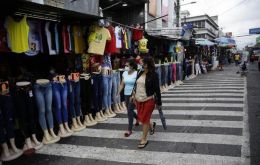
Inflation in Brazil ended 2020 at 4,5% the stats agency IBGE revealed on Tuesday, above the central bank's target, with food prices rising, 14,1%, the most in two decades.
-
Wednesday, December 23rd 2020 - 09:35 UTC
Brazilian financial analysts upgrade growth forecast for 2020

Brazilian financial analysts slightly upgraded their growth forecast for 2020, from a 4.41% drop in gross domestic product (GDP) to a 4.4% drop, the Central Bank of Brazil reported.
-
Saturday, November 14th 2020 - 08:20 UTC
During September for the fifth month running economic activity is picking up in Brazil

Economic activity in Brazil rose in September for the fifth month, a central bank survey showed on Friday, more than economists had expected, pointing to a solid recovery in the third quarter from the worst of the COVID-19 shock earlier in the year.
-
Saturday, November 7th 2020 - 08:06 UTC
Food and transport costs lifting annual inflation in Brazil to the central bank year target
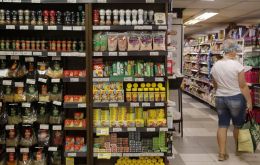
Brazilian inflation in October rose to its highest level for that month since 2002, figures showed on Friday, driven by rising food and transport costs and lifting annual inflation to within sight of the central bank’s year-end target.
-
Friday, November 6th 2020 - 08:51 UTC
Brazilian Senate votes overwhelmingly in favor of Central bank autonomy
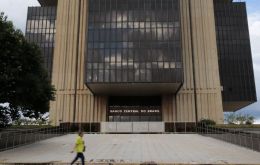
Brazil’s Senate voted overwhelmingly to approve a bill that would establish the autonomy of the central bank to reduce political interference in monetary policy and align the country with other major economies.
-
Saturday, October 31st 2020 - 07:51 UTC
Brazil's central bank intervenes twice in the week in support of the weakening Real

Brazil's central bank intervened in the foreign exchange market on Friday, selling dollars to ease heavy downward pressure on the real that had pushed the local currency closer to its all-time low against the dollar struck earlier this year.
-
Wednesday, August 26th 2020 - 09:45 UTC
Brazilian central bank chief and Economy minister, “are fully aligned”
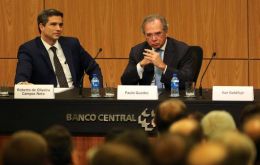
Brazilian central bank president Roberto Campos Neto said he has not been sounded out about replacing Economy Minister Paulo Guedes when he eventually leaves his post, and said the whole notion is a “non-issue.”
-
Thursday, August 6th 2020 - 09:19 UTC
Brazil's central bank cuts Selic lending rate to a record low of 2%
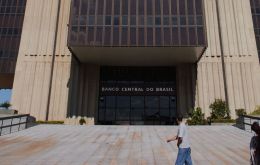
Brazil's central bank cut its key Selic lending rate to a record low on Wednesday and left the door open for more cuts, as the outlook for inflation remains below target amid the impact of the coronavirus pandemic on the economy.
